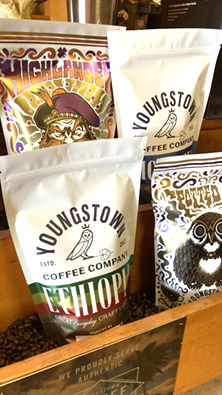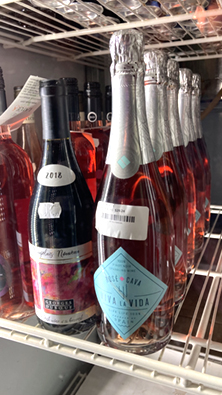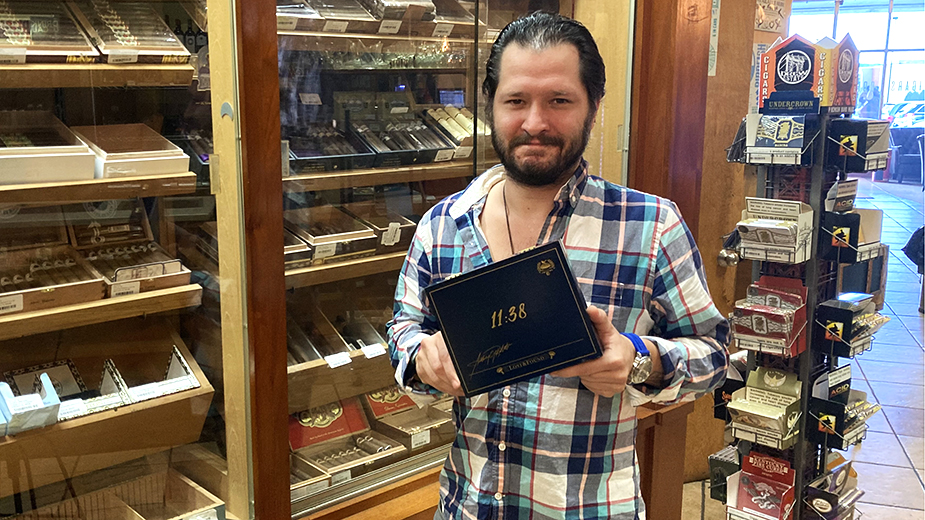BOARDMAN, Ohio – For 52 years, Havana House has been in the business of educating its customers, often informing their tastes as much as it caters to them.
“It all started as a little book and newsstand,” says Tony Bellatto, president and the third generation to operate the business.
Havana House began in 1970 when Bellatto’s grandfather Lou opened Girard Book and News on State Street in Girard. Two years later, Lou’s son Gino joined the business, which carried newspapers, magazines and tobacco products.
The business expanded to Boardman, and for a time, Austintown. When Tony entered the business in 2004, he saw that the model needed updated. “We saw the writing on the wall with magazines. It was right at that point where digital media was kind of taking over,” Bellatto says. “You never really had cash flow with magazines and newspapers and that business slowly began to move itself to airports.”
To fill the gap, Bellatto began to focus on selling premium cigars, which the store had offered since the 1970s. During the 1990s, the industry saw a big boom. “We’re in another boom now,” Bellatto says.
“In the ’90s, they were $1.50. A big difference in cost and quality.”
The difference is that more and more people are willing to pay for premium cigars today. To illustrate the time and care it takes to create a cigar, Bellatto relates a popular saying from the industry: It takes 200 pairs of hands to create one cigar.
“It’s not a bunch of old guys sitting around in leather chairs in a smoke-filled room,” Bellatto says. “This is a premium handmade product. It’s a craft product. There are a lot of different nuances to experience with it.”
In 2012, Bellatto created the La Barba Cigar Co. The cigars are manufactured in the Dominican Republic and distributed from Miami.
A new venture, Bellatto Premium Cigars, will hit store shelves as soon as the boxes arrive. The brand features three lines with four cigars each and is in honor of Bellatto and his father, who are celebrating 10 and 50 years in the business, respectively. “It’s a pain to wait but the cigars are getting more time to age so it’s a win-win, I guess.”

Cigars aren’t the only handcrafted products customers seek at Havana House.
In 2017, Bellatto launched the Youngstown Coffee Co., which has its roasting operations in the back of the store in Boardman.
Havana House had been buying its coffee from a local roaster. When the roaster decided to retire, Bellatto bought his equipment and asked him to train some of the staff. “We wanted to learn how to roast coffee the right way without all the bells and whistles,” Bellatto says.
One person he enlisted to help was store manager Luther Foster. “Learning how to roast coffee was a completely new experience for me. It was basically trial by fire,” Foster says.
The roaster that Havana House used was from the 1980s and built in Turkey, with gauges in Celsius and metric. That only increased the challenge. “We just had to learn by sight instead of having our hands held by an automated computer system,” Foster says.
Today, Youngstown Coffee Co. products are available in stores and online. The company is preparing to launch a new line of canned cold brews as soon as the recipe is perfected.
“Canning cold brew is a new thing for us. We’ve only done one batch and we’re getting ready to do another batch,” Foster says.
The canning is done at Modern Methods Brewing in Warren, which uses Youngstown Coffee Co. beans in the recipe for its Percolator lager.
In 2008, Bellatto fell in love with craft beer and began to seek it, especially from local breweries, which were popping up everywhere.
“Over the last 10 years, we’ve completely eliminated the Budweisers and the Bud Lights and now three quarters of my coolers are regional breweries,” Bellatto says.
Besides craft beer, coffee and premium cigars, Havana House features a large selection of wines, which happens to be Bellatto’s latest venture.
Recently Bellatto began to import a Spanish Cava, an inexpensive table wine, and one of the most popular types of wine from Spain. Bellato’s wine, Viva La Vida, is a rosé but not the kind most Americans are familiar with. In fact, the sweet, pink rosés popular in the United States reportedly resulted from an accident in 1972 by Bob Trinchero of Trinchero Family Estates.

According to Sutter Home, which began to distribute the wine that became know as white zinfandel, Trinchero was trying to create a more robust wine. Because of a stall as it fermented, the wine retained about 2% residual sugar, making it sweet.
“They said ‘Let’s bottle this and see what happens,’ Bellato says. “And now you have 10 million cases a year. But real rosé should be dry.”
Today Havana House has three stores: in Boardman, at the Eastwood Mall Complex in Niles and in Bath. Bellatto says cigars are the biggest segment of the business and their popularity is growing.
Recent data from Statista find the domestic cigar industry is on a path to generate $12 billion in revenue this year and it’s expected to grow by 4.7% annually through 2027.
Cigar makers are also breathing a sigh of relief over a July order from a federal judge who found the FDA ignored relevant data about the health risks of cigar use when it tried to regulate cigars under the same restrictions as cigarettes and vaping.
Still, Bellatto says each of his products faces challenges unique to its industry that may have nothing to do with inflation or the supply chain.
Recent increases in prices for coffee beans, Bellatto says, stem from the cargo ship that became stuck in the Suez Canal in 2021 and a large fire in Brazil that destroyed “a billion pounds of coffee.”
As for hiccups in the wine industry, he points to recent droughts in France and damaging fires in California and the state of Washington. “What’s leading to the inflation is these act-of-God events. It’s happening in every industry,” Bellatto says.
While nobody foresaw how these industries would be affected by these random events, Bellato says he knows he can count on continued support in the region.
“That’s what’s good about living here at this time. A lot of people my age are coming back and starting businesses,” Bellatto says. “The other thing about this town that I love is when something local pops up, people support it. That’s really cool.”
Pictured at top: Tony Bellatto is the third generation to run the always evolving family business.
